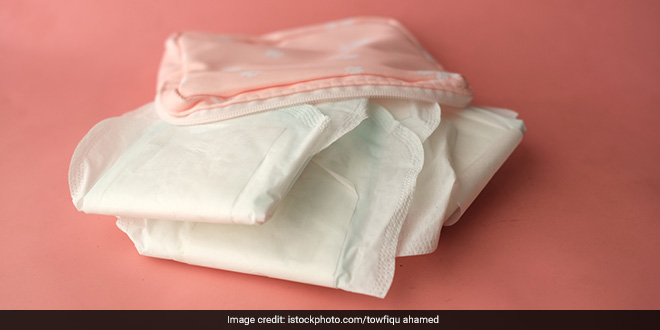New Delhi: The New Delhi Municipal Council (NDMC) has taken an initiative to distribute sanitary napkins to women sanitation workers every month, officials said on Thursday (March 9). The NDMC chairperson has approved the proposal of the public health and welfare departments to distribute sanitary napkins to them.
These sanitary napkins will be distributed every month and the initiative will be continued for a year initially.
To mark International Women’s Day, NDMC has decided to start distribution of sanitary napkins to women safai sewaks every month, the NDMC said in a statement.
Also Read: Meet 15-Year-Old Ananya Who Is Raising Menstrual Health Awareness Among Rural Girls
As many as 640 women sanitation workers in the NDMC area will benefit from this initiative, it said.
These sanitary napkins would be of good standards and made of biodegradable material to minimize the impact on the environment, the NDMC said.
The civic body has also provided sanitary napkins to the girl students of its middle and senior secondary schools to improve good habits of menstrual hygiene from the initial stage of life.
It has provided special/smart public toilets in its area for women with sanitary napkin vending machines. The working women hostels of NDMC also have such machines and incinerators for the disposal of used napkins.
It has also installed such sanitary napkin vending machines and incinerators in different localities.
Also Read: Menstruation Is A Sign Of Life, Don’t Be Ashamed Of It: Navya Naveli Nanda
(Except for the headline, this story has not been edited by NDTV staff and is published from a syndicated feed.)
NDTV – Dettol have been working towards a clean and healthy India since 2014 via the Banega Swachh India initiative, which is helmed by Campaign Ambassador Amitabh Bachchan. The campaign aims to highlight the inter-dependency of humans and the environment, and of humans on one another with the focus on One Health, One Planet, One Future – Leaving No One Behind. It stresses on the need to take care of, and consider, everyone’s health in India – especially vulnerable communities – the LGBTQ population, indigenous people, India’s different tribes, ethnic and linguistic minorities, people with disabilities, migrants, geographically remote populations, gender and sexual minorities. In wake of the current COVID-19 pandemic, the need for WASH (Water, Sanitation and Hygiene) is reaffirmed as handwashing is one of the ways to prevent Coronavirus infection and other diseases. The campaign will continue to raise awareness on the same along with focussing on the importance of nutrition and healthcare for women and children, fight malnutrition, mental wellbeing, self care, science and health, adolescent health & gender awareness. Along with the health of people, the campaign has realised the need to also take care of the health of the eco-system. Our environment is fragile due to human activity, which is not only over-exploiting available resources, but also generating immense pollution as a result of using and extracting those resources. The imbalance has also led to immense biodiversity loss that has caused one of the biggest threats to human survival – climate change. It has now been described as a “code red for humanity.” The campaign will continue to cover issues like air pollution, waste management, plastic ban, manual scavenging and sanitation workers and menstrual hygiene. Banega Swasth India will also be taking forward the dream of Swasth Bharat, the campaign feels that only a Swachh or clean India where toilets are used and open defecation free (ODF) status achieved as part of the Swachh Bharat Abhiyan launched by Prime Minister Narendra Modi in 2014, can eradicate diseases like diahorrea and the country can become a Swasth or healthy India.




















